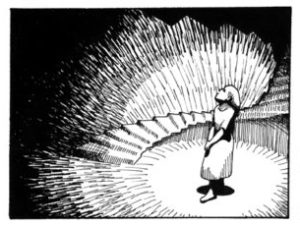Ooooow. It hurts to move, but it’s bearable because it stops hurting when I stop moving. Having control over the pain makes all the difference. This surgery was definitely different. So many people came to talk to me in pre-op, I felt like a minor celebrity. I guess that happens when you have two surgery teams. I hadn’t spent nearly as much time with the plastic surgeon, so it was nice to get some things clarified. For one, I asked why the orthopedist kept talking about using the pectoral, but the plastic surgeon didn’t. It turns out they don’t like to use that technique on women, because they have to cut straight through the entire breast to get to it. (What! Again, my imagination had betrayed me, since I thought they could just slip in behind the breast to get what they needed.) They would see what they had to work with during surgery, and decide then. Then, just to mess with me, they veered from this highly distressing revelation, to a side comment about how there had been a lot of success grafting free muscle tissues onto this kind of injury to restore motion, if I was interested in multiple successive surgeries. Having had my hopes thoroughly dashed in this regard already, I was really not prepared to process the possibility.
Also, I hate surgery.
So much.
(It turns out if you just start quietly crying to yourself because you really hate surgery, and here you are having surgery, again, your pre-op nurse mistakes it for pain, and quietly authorizes an extra dose of dilaudid, because she figures you’re in pain from your mangled shoulder.
I didn’t correct her.)
The surgery was over in a blink, or 4-6 hours if you’re not drugged.
I woke up to a couple pieces of good news. Remember how my two main sources of pain over the past three months were from muscle cramping and distended skin from the shifted space-holder? The cramping reduced the atrophy in the deltoid so much that, in addition to the latissimus, there was plenty of muscle for wound coverage – no need to go after the pectoral at all. AND, the shifted cadaveric scapula had distended the skin SO MUCH that there was plenty of that too. No skin graft of any kind required. That’s pretty good news for my anticipated recovery time.
I was feeling so much better than I thought I would, that I really pushed for getting home the next day, instead of staying in the hospital longer. That almost didn’t happen, though, because I fell. The first time I got up to use the bathroom, I was standing in front of the bathroom sink and my knees gave out. This terrified my nurse and the PT who had just come by to see if I wanted to try walking. Of course there was plenty of reason to be terrified, what with all the muscles that had been shifted around and sewn together elsewhere, and the not one, but four drains sprouting from my left side.
But get this, it was the perfect fall. I felt my knees give out and immediately dropped to my butt, then rolled back tightly, no arms splayed for balance. I put some pressure on my lower back, but shoulders and head didn’t hit anything. But by the time the nurse burst in, I had unrolled enough to be resting my head and shoulder against the bathroom wall, so when I told her, “Actually, I’m fine,” she heard “I have a concussion and I’m dying.”
I would like to take a moment in the story for this public service message. Everyone should take some aikido. It could save your life someday.
I had some trouble standing up after that, so I was very slow and careful about getting my legs under me just so. An OT came in later to take my blood pressure sitting, standing, and after leg exercises, through which we discovered my blood pressure was plummeting every time I stood. I promised to be very careful about it though, if they would just let me go home. The nurse still made me change my socks from cheerful purple to shame yellow, though – passively announcing to everyone that I had fallen and was not to be trusted.
But really I was fine. They grumbled about maybe getting an x-ray to make sure I hadn’t ripped something, but when it became obvious that my pain levels hadn’t changed at all, and I was, in fact, fine, they let it drop.
So they let me come home yesterday, back to my beloved couch where people let me sleep through the night and don’t keep taking superfluous blood samples.
I feel good. Yes, I’m in a lot of pain. Yes, I have to be supervised when upright. But there’s something so very reassuring about how tightly attached the shoulder is after months of instability, that it also feels good. And watching the drug schedule, tending the drains, taking the daily shots, struggling up and down from the couch… We’ve done it all before. It’s finite.
Phew.
author . artist . singer
© 2024 Margaret Treanor Frey
Theme by Anders Noren — Up ↑

Leave a Reply